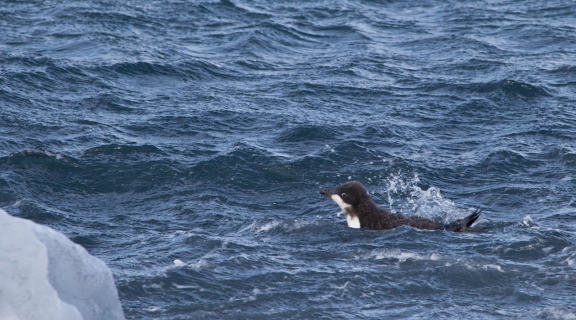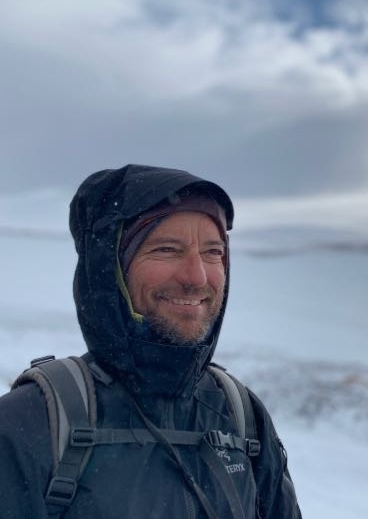
Rosenberg Institute Seminar Series - Grant Ballard
Overview
Disparate dispersal behavior of fledgling Adelie penguins from two colonies on Ross Island
Grant Ballard, Annie Schmidt, Amelie Lescroel, Sean Burcher, Katie Dugger
Several studies have implicated post-fledging survival as an important driver of Adélie penguin population dynamics. Juvenile seabirds, including penguins, are particularly difficult to study as they do not return to breeding colonies for several years post-fledging, and usually have very low survival rates compared to adults. As a result, this important life history phase remains understudied. We present initial results from the first study of Adelie penguin fledgling diving behavior, and the first assessment of fledgling dispersal patterns in the Ross Sea. In late summer 2023, we deployed newly invented, transmitting GPS-TDR tags on 54 fledgling Adélie penguins at two colonies on Ross Island, Cape Crozier (~250K breeding pairs) and Cape Royds (2.5K breeding pairs). Data from the first 100 days showed that penguins from Cape Crozier moved rapidly in a northeasterly direction, covering an average of 61 km per day. In contrast, penguins from Cape Royds stayed near the Victoria Land coast and moved much more slowly (25 km per day). Diving data indicated that fledglings made an average of 483 (SE ± 52) dives before their first foraging dive was recorded. Fledglings performed fewer and shallower foraging dives compared to adults over the same period but started to approximate adult dive behavior by the end of the first 30 days at sea. The rate of tag disappearance was higher for Cape Royds fledglings over the first 30 days (70% lost) compared to Cape Crozier fledglings (40% lost), suggesting higher early mortality rates of fledglings from the much smaller Cape Royds colony.
Dr. Ballard leads Point Blue’s 160 scientists working to increase the pace and scale of climate-smart conservation. He is an ecologist with more than 100 scientific publications and expertise in evaluating the impacts of climate change on wildlife and human populations, as well as data science. Dr. Ballard has conducted research on a wide array of projects from California to Alaska, Antarctica, and the Virgin Islands. He has a Ph.D. in Biological Sciences from the University of Auckland and a B.A. in English from Cornell University.
